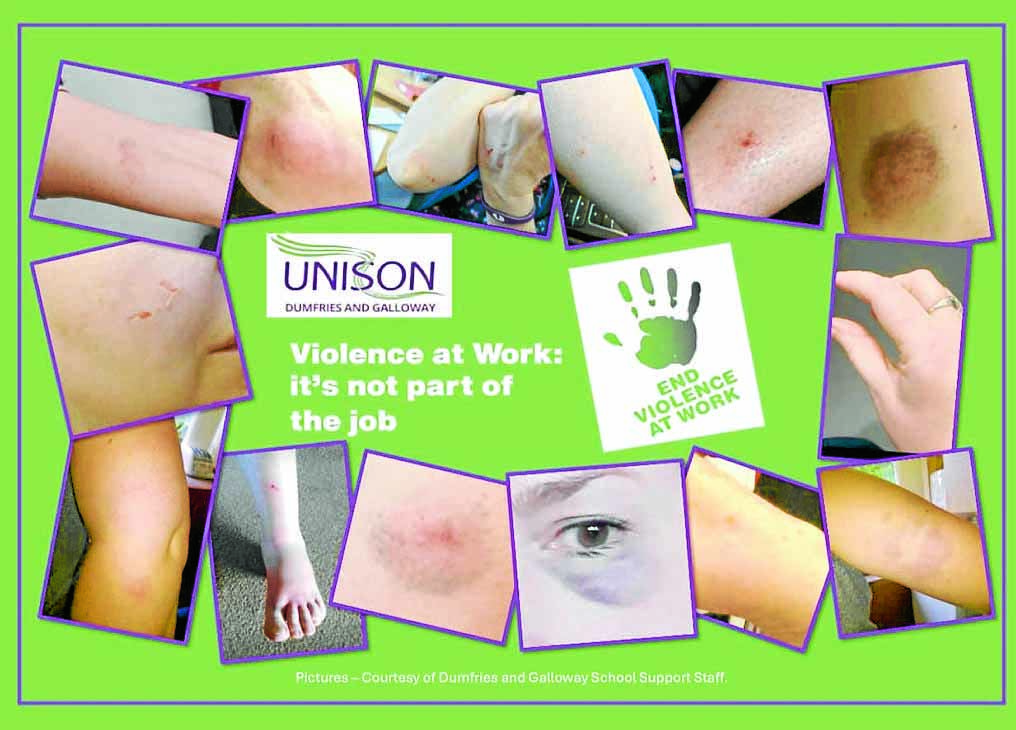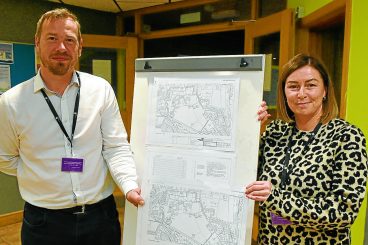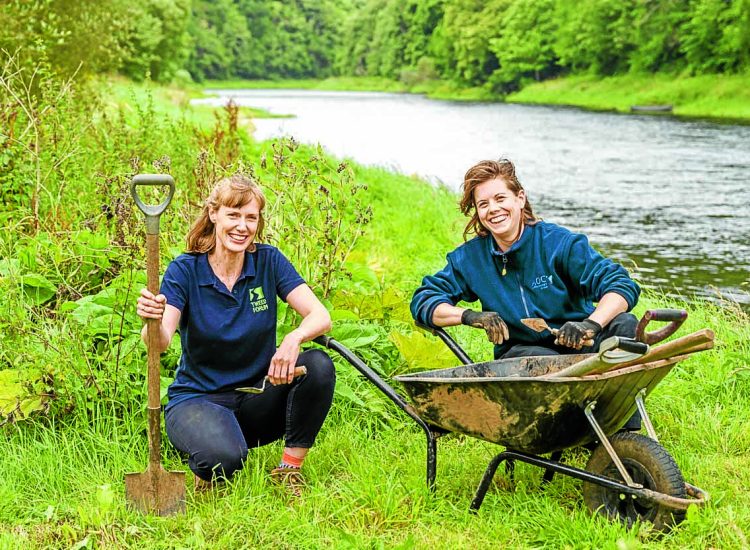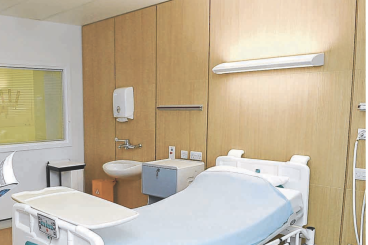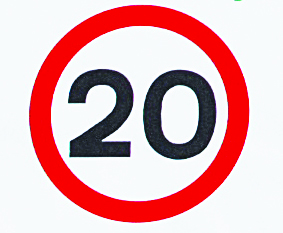HUNDREDS of school support staff in Dumfries and Galloway have experienced violence while at work, from being punched and kicked to nipped and headbutted.
The shocking discovery was made in a survey carried out by the local branch of Unison, where ‘a substantial number’ of education staff revealed they have been injured while working at schools, nurseries and education centres.
The union wanted to determine how violence in schools impacted on employees and gathered over 400 responses from staff at over 100 sites locally. Over 90 per cent of them were women.
And they say the results “painted a harrowing picture of the extent of the problem”.
Feedback was provided by learning assistants, early years practitioners, attendance and wellbeing officers, early years support assistants, nursery nurses, nursery managers, early years practitioners, janitors, cooks, homelink workers, cleaners, clerical/admin workers, catering managers, technicians, library staff, communications and digital development workers, and even some teachers.
One respondent said: “As part of the job I’ve regularly been hit, bitten, scratched, nipped, screamed at, had things thrown at me, hair pulled, glasses knocked off etc.”
When asked about types of violent behaviour, 92 per cent reported they had experienced shouting and 89 per cent swearing. However, most did not consider this to be violent behaviour.
Kicking was experienced by 80 per cent; having objects thrown at them and being pushed and shoved affected 79 per cent; slapping and punching was experienced by 76 per cent; while biting, spitting and nipping happened to 62, 61 and 57 per cent respectively; and scratching and gouging by 53 per cent and hair pulling by 49 per cent.
Other examples included body slamming, headbutting, sexually inappropriate behaviour, throttling or choking actions, and stabbing with sharp objects/toys.
Several respondents said they had to get medical treatment, particularly after bites, and some said it was a daily issue and had left them with scarring.
Meanwhile, nearly half did not feel their employer took violence complaints seriously and many hadn’t felt supported by management. Also, 57 who responded had to take time off work because of violence or aggression there, but 31 of them did not feel safe and supported to return.
One person said: “It is now accepted as ‘normal’ behaviour. This has to stop. No one should go to work to be hurt or abused.”
Commenting, Unison health and safety officer Karen Korus said: “The number of incidences of violence at work and the type of incidents staff have shared in the survey is sadly not surprising but is extremely concerning.
“The council need to recognise the extent of the problem and the fact it even affects pre-school children.
“These figures would be even higher if staff were aware that shouting, swearing and other forms of verbal abuse also constitute violence at work under health and safety law.
“It is concerning that so many do not feel supported after reporting an incident or returning to work after an absence following a violence at work incident. It is also extremely worrying that so many staff do not feel the council takes violence at work complaints seriously.”
She called on Dumfries and Galloway Council to ensure proper support is in place for staff suffering violence at work, adding: “The council’s booklet “Supporting staff and adults in our schools” is to be welcomed but the council has to ensure headteachers and centre managers read and follow the booklet’s guidance and ensure it is not ignored.”
The council were contacted for comment.





